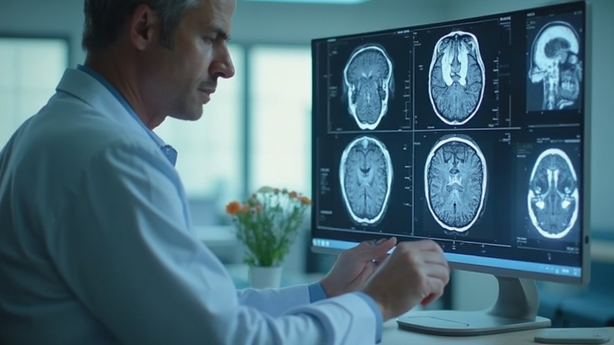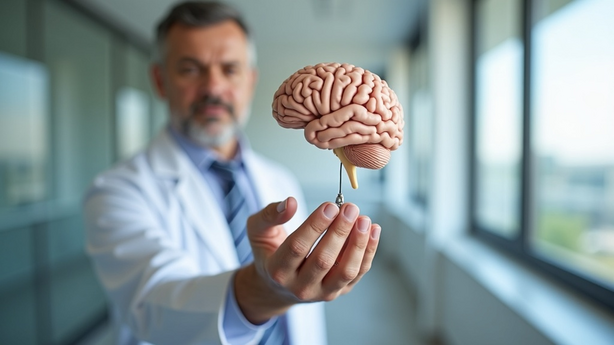"`html
Understanding the early symptoms and treatment options of a brain tumor is crucial for managing your health. Brain tumors can cause a variety of early symptoms depending on their location and size, and can be effectively managed with appropriate treatment. Prompt diagnosis and treatment play a crucial role in improving a patient's quality of life.
Early symptoms of a brain tumor
Early symptoms of a brain tumor can vary depending on its location and size. Common early symptoms include headache, nausea, vision problems, and seizures. These symptoms can vary in form and intensity depending on where in the brain the tumor is located.
First, headaches tend to be worse in the morning and often do not respond to other painkillers. Nausea and vomiting are common, and symptoms may be especially worse before or after breakfast. Vision problems may manifest as blurred vision, double vision, or loss of peripheral vision. Seizures are caused by electrical abnormalities in the brain and are often observed when a tumor disrupts nerve conduction.
- headache
- nausea and vomiting
- visibility problems
- seizure
- Language and cognitive problems

“`
"`html
How to diagnose brain tumors
The most crucial step in diagnosing a brain tumor is determining its presence and characteristics. To do this, MRI and CT scans are primarily used to assess its precise location and size. MRI uses magnetic fields to provide high-resolution images, making it useful for identifying the detailed structures of a tumor. Conversely, CT scans use X-rays to provide a more rapid assessment of the overall size and location of a tumor.
In addition, there are various auxiliary diagnostic methods. Blood tests and neurological examinations can be used to detect potential tumor markers or changes in neurological function, providing additional information. These diagnostic steps are crucial for determining the type and stage of the tumor and play a significant role in determining the appropriate treatment approach. The availability of these diverse approaches to brain tumor diagnosis is crucial at the outset of treatment.

Practical application of early symptoms and treatment methods of brain tumors
Early detection and appropriate response to the early symptoms of a brain tumor are key to successful treatment. If symptoms such as headaches, vision problems, or seizures persist or worsen during daily life, prompt diagnosis and treatment by a specialist are essential. Proactive intervention in the early stages can significantly improve treatment outcomes. Various treatment strategies exist for brain tumors, and applying them to daily life requires systematic planning and execution.
After a physician's professional diagnosis, an individualized treatment plan, including surgery, radiation therapy, or chemotherapy, is developed, taking into account the tumor's size and location, as well as the patient's overall health. The specific treatment method and its implementation will vary depending on the diagnosis and the patient's preferences, and understanding this decision-making process is crucial for the patient and their family. Furthermore, as treatment progresses, continuous monitoring and response to changes in the patient's condition are essential. This is crucial for ensuring the early detection of brain tumors and the effectiveness of treatment.
“`
"`html
Current Trends and Future Prospects in Brain Tumor Treatment
Recent advancements in medical technology have brought about significant changes in brain tumor treatment. Cutting-edge technologies such as precision medicine and immunotherapy are increasingly being incorporated into treatment methods. Precision medicine allows for personalized treatment plans based on a patient's genetic makeup, maximizing treatment effectiveness. Furthermore, immunotherapy utilizes the body's immune system to attack tumor cells, contributing to reducing side effects and increasing efficacy.
In the future, artificial intelligence and machine learning technologies are expected to be applied more widely in diagnosis and treatment planning. These technologies can rapidly analyze vast amounts of data and suggest optimal treatment paths. Patients can expect higher treatment success rates and improved quality of life through the benefits of these cutting-edge technologies. Furthermore, the development of new treatments through research and clinical trials will continue.
Conclusion and wrap-up
Understanding the early symptoms and treatment options of a brain tumor is crucial information for patients and their families. Recognizing early symptoms, prompt diagnosis, and appropriate treatment are the foundation for successful treatment. Paying attention to early symptoms and consulting a specialist can improve treatment outcomes.
Early, thorough diagnosis and appropriate treatment planning can increase patient survival rates and improve quality of life. Therefore, it's important to expand your knowledge of the early symptoms and treatment options of brain tumors, and further develop a specific treatment plan through consultation with a specialist. This will help patients with brain tumors move forward toward a brighter future. Consult with a specialist today to establish the optimal treatment plan for your brain tumor.
“`